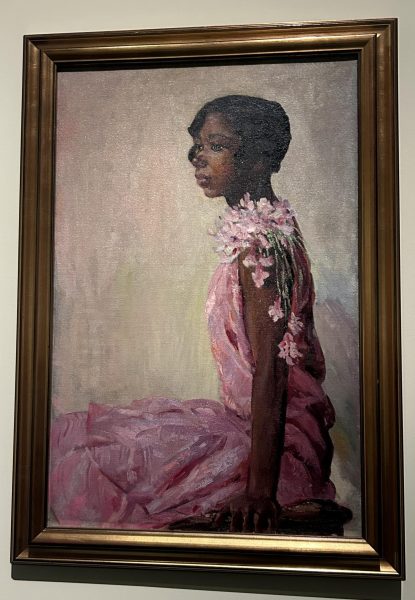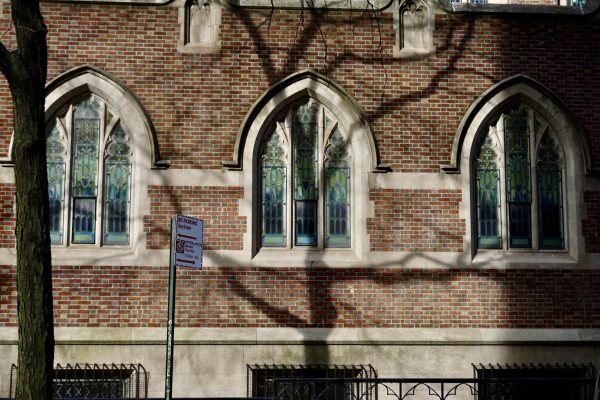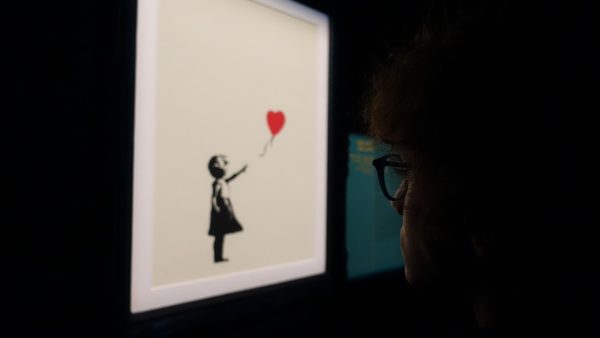‘I Am Evidence’: A Deep Dive into the Hidden Underbelly of Rape Cases in America
Jordan Sanchez ’19 is unsurprised by the level of disrespect that women face when reporting rape cases in this country, but hopes things will be better for future generations.
“Nobody gives a damn about women in this country.”
At least that is what Kym Worthy believes, and it is hard to find her opinion unwarranted after watching events in the documentary, ‘I Am Evidence’, unfold the way they did. The documentary, produced by Law & Order: SVU actress Mariska Hargitay, painstakingly wove together a story of multiple victims, assailants, and cities, to come to one basic conclusion; this nation has allowed for a cycle of victim blaming to permeate through our law enforcement leading to the rape kit backlog, and it is time to put an end to it.
Worthy, herself a victim of sexual assault, already knows how terribly victims are treated by the people who should be helping them. Yet, even she was astounded by the size of the rape kit backlog, not only in her home city of Detroit, but also throughout the country.
For decades now, thousands of victims who were brave enough to come forward and endure a rape kit have ended up shelved into dark corners, unable to receive justice or closure. They were seen as unreliable, they were shamed, and they were told to give up because no one was going to fight for them.
“I think public perception, and at times law enforcement, tends to discredit the survivor and dismiss the crime in ways they wouldn’t for other offenses,” said Julia Catrambone ’19, a member of Project FIRE and the Sexual Assault Board at our school.
Even as more attention is being brought to sexual violence, law enforcement in this country continue to have a hard time combatting this problem. Along with being one of the most underreported crimes, rape has one of the lowest arrest rates, at only 20%, compared to other violent crimes. The prosecution rates are even lower at only 4%, following with conviction rates of a mere 2%.
“I think the backlog of rape kits and the low arrest rates are demonstrative of a criminal justice system that doesn’t care that much about rape victims,” said Catrambone.
When dealing with sexual assault cases not all law enforcement officers are built for the task; their lack of training leads to mishandling of both the evidence and the victims. Yet dozens of law enforcement agencies have been trying to turn the tide, and with Worthy, have launched a campaign to fix the system.
“I don’t think the trust of victims will be completely regained in my lifetime, but maybe in my children’s. Law enforcement would have to immediately provide funding to go through the backlog and properly, physically, mentally, and emotionally, support victims,” said Jordan Sanchez ’19.
This path to reform has not been an easy one, though, with as many failures as successes. This was never more obvious to the group of officers in Cleveland, Ohio, who were able to identify and locate a serial rapist, but not before he raped two other girls. It was a pyrrhic victory, and many felt they achieved nothing.
Yet the cases are not the only obstacle, as law enforcement agencies themselves are stubborn in their ways and are not fans of change. When the Los Angeles District Attorney Steve Cooley was confronted with evidence that his district court had a pattern of throwing out rape cases, his first instinct was to deflect. He claimed the reports were unfounded and had been thoroughly disproved, even though there was more than enough evidence to the contrary.
“Although the phenomenon is tragic, it is not uncommon. Black women are centered at the crux of racism and sexism in America,” said Jordan Sanchez ’19.
Another problematic part of law enforcement’s way of handling rape cases is the obvious racial aspect of it. Detroit is one of the worst offenders of this phenomenon. Even though Detroit’s demographic consists of a large African-American community, when it comes to rape cases, white women are taken more seriously. They are prioritized, while the majority of victims, black women, are seen as unreliable. Los Angeles, similarly, has a problem when it comes to victim profiling, claiming that only “righteous victims” have the ability to get an arrest or even investigation.
“Although the phenomenon is tragic, it is not uncommon. Black women are centered at the crux of racism and sexism in America,” said Sanchez.
This is a common practice among a lot of law enforcement who do not want to accept responsibility or deal with the consequences. This lack of care has been disastrous for many victims across America, and the documentary does an amazing job of detailing the toll these careless decisions have cost the victims.
Ericka in Detroit, who was raped by her boyfriend’s friend on her twenty-first birthday, went to the police with her dad and was told that no one was going to help her and she should give up. She had her body violated twice in one night, once by her rapist and the second by the doctors who poked and prodded at her for evidence, and it was all for nothing. She ended with what was supposed be the best day of her life broken and hopeless.
Helena in Los Angeles had just turned seventeen, when she was taken captive, robbed of her wallet and driver’s license, and repeatedly raped. She spent years living in fear of the unknown as her case was ignored, and her rape kit was put into a backlog.
Only two years later, in Fairfield, Ohio, Amberly was taken captive and raped by Helena’s rapist. Her life spiraled into a whirlwind of drugs and alcohol after the incident. Fortunately for her, she had a saving grace, a police officer who took an interest in her case; Officer Michelle Brettin, put every resource she had into finding Amberly’s rapist. By the time they found him, though, the statute of limitation on Helena’s case had run out.
This documentary has brought a lot of attention to how sexual assault is handled in the U.S and the consequences due to the lack of care given to these cases for decades. Law enforcement in this country is slowing working their way through the backlog and hopefully solving the issues that created the backlog in the first place. Yet, even with all the effort that has been put into reform, there still remains a long way to go. We, as nation, have spent too much time ignoring victims of rape and the continuance of the backlog is the final straw.
“In order to fix the problem, I feel Americans have to be more empathetic, especially those in power,” said Sanchez. “They need to realize other people are complete humans with experiences and struggles that are out of their control.”
Sadia Haque is a Senior Staff Reporter for ‘The Science Survey’ and a Academics Section Editor for ‘The Observatory.’ She finds journalism appealing...
Sinaia Keith Lang is a Managing, Advisory, and Copy Editor for ‘The Science Survey’ newspaper and an Editor-in-Chief of ‘The Observatory’ yearbook....











